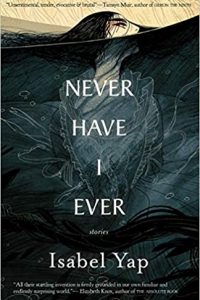Gary K. Wolfe reviews Mary Rickert
The many readers (myself included) who have been eagerly anticipating a first novel from World Fantasy Award winner M. Rickert might at first wonder why that once-enigmatic ‘‘M.’’ has been replaced by Mary Rickert’s full name on the cover of The Memory Garden, along with some pretty flowers. Is this a hint that Rickert’s famously dark vision has been modulated in the service of a novel-length work? Or is it simply that the novel comes to us from Sourcebooks Landmark, a publisher which has stated that it wants to target women readers in general and book clubs in particular? There are indeed ghosts in The Memory Garden, although they aren’t particularly threatening, and while some very dark secrets emerge that are as unsettling as any of Rickert’s tales of domestic life gone awry (such as ‘‘The Chambered Fruit’’ or ‘‘The Christmas Witch’’, both of which came to mind at times), the main vector of the novel turns out to be one of surprising affirmation. It may be that love has always been Rickert’s major theme, and while it sometimes goes off the rails in decidedly creepy ways in her short fiction, it’s never treated cynically, and it’s never without real power. That power is what finally drives The Memory Garden, particularly in regard to the relationship between 79-year-old Nan and her adoptive 15-year-old daughter Bay, who was left on Nan’s doorstop in a shoebox. As is common in Rickert, both are outsiders in their small community, with Nan reputed to be a witch and Bay having been born with a caul, which, according to Nan, is supposed to signify certain occult powers.
The central image of the novel, and part of the reason Nan is suspected of witchery, is her lush garden in which various flowers are planted in discarded shoes, and which seems immune to the deer and other wildlife that disrupt other gardens in the region. The flowers also play a key thematic role, and each chapter is prefaced by a brief and usually mordant description of the meanings of various flowers (lilacs, for example, ‘‘are used to surround the dead when they lie in state, to mask the odor of decaying flesh’’). The garden is also where Bay begins seeing ghosts, such as a boy named Karl who died in an earlier accident. But the most important haunting involves a young woman named Eve, who more than 60 years earlier had been best friends with Nan and her friends Mavis and Ruthie. Unnerved by a phone call from the local sheriff and concerned over her own age and declining powers, Nan tracks down Mavis and Ruthie for the first time in decades and invites them to stay at her house, hoping to lay to rest ancient guilt involving Eve and the death of Miss Winter, a reputed witch from their own childhood. Mavis and Ruthie turn out to be lively and entertaining characters in their own right, despite Mavis’s cancer, but another unanticipated guest arrives claiming to be Eve’s grandniece researching a book on her family history – which complicates the reunion in unexpected ways.
The notion of three elderly friends reuniting to confront a tragedy from their childhood at times recalls the Chowder Society of Peter Straub’s Ghost Story, and in particular that novel’s famous opening line, ‘‘What was the worst thing you’ve ever done?’’ As we learn the story of what happened to Eve and Miss Winter, and of how Bay came to be left on Nan’s doorstep, we find ourselves in more familiar M. Rickert territory, but this darker tone doesn’t so much take over the novel as contextualize and deepen that opening garden metaphor. When Bay, facing her own loneliness and the prospect of a life without Nan, says to her late in the novel, ‘‘You know how some people say you are a witch and how that always made me so mad?… Well, I’ve thought about it a lot, and I want you to know I wouldn’t change anything about you,’’ it comes off without a trace of the sentimentality one might expect from a rebellious girl who learns better. Instead it’s a simple declaration of truth, an acknowledgment that a love story might as well be about an old woman and a young girl, though it’s surprising how seldom we see that. With some of her most luminous prose and most warm and engaging characters – a lot of readers will be left wanting to know more about Bay’s later life – Rickert’s debut novel both delivers on the promise of her short fiction and offers more than a few surprises.







